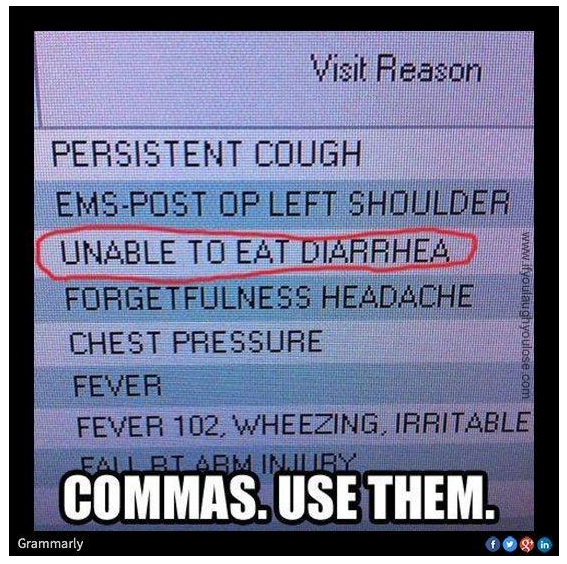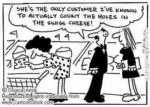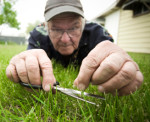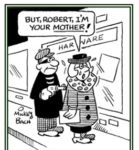Tomorrow’s Test: Commas and Phrases, Rhetorical Devices, Vocab, Dah Givah, Husker Du.
Test Preview: Test 17 Preview
“Commas and Phrases and More, 2/3.” (10) NOT Collaborative.
A. Show where the comma goes in each sentence.
B. Use p259 in BoB to say what kind of Introductory Phrase each sentence begins with.
C. Give examples for 5 and 6.
- (2) A popular and well respected mayor Eric was the clear favorite in the campaign for governor.
- (2) Barking and whining constantly Clint got us to throw his ball for him.
- (2) After the applause Stella gave an inspiring speech.
- (2) To stay in shape for competition Celeste must exercise every day.
- Give an example of a loaded question. (Not mine.)
- Give an example of a rhetorical question (Not mine.)
- _____
- _____
- _____
- If you searched in a more organized way instead of so ______(ly), you might actually find what you’re looking for.
- The school board in Tennessee was worried they might _____ on Art Speigelman’s copyright if they redacted the “offensive” parts of Maus.
- The class was stoked to get a last-minute _____ from the test.
- Another word for _____(nce) is sloth; one of the “Seven Deadly Sins.”
- Zeros have a much more _____ impact on your grade than a “regular” F.
- She ______(ly) prepared for the test, so she aced it. (Not profound.)
- After a long battle with the Barons and other nobles, the King finally ____(ed) his power to them.
- I’m sure the other plane passengers were quite ______(ed) with all of Vladek’s delays.
- (2) The ______ telemarketer left the sad old woman broke and ______.
- There are 4 examples of anachronisms in this room. Name one. (Mr. Coward does not count.)
VOCAB RELAY!
“Dah Givah, 5/6.” OPEN BOOK. Not Collaborative. Letter OK.
- Why is Jonas angry at Fiona in his dream? a) She is breaking the rules. b) She is making fun of his eyes. c) She is angry at him. d) She won’t take him seriously. e) All of the above.
- How does Jonas describe his dream? a) Pleasurable and confusing. b) Frightening and confusing. c) Confusing and funny. d) Sad and depressing. e) NOTA
- What did Jonas say was the strongest feeling in his dream? a) fear b) confusion c) desire d) anger e) embarrassment f) NOTA
- What distinguishes the Sevens from the younger kids? a) They have bicycles b) They have to volunteer in the Community. c) Their jackets button down the front. d) They get haircuts. e) NOTA
- This, in this community, was the first sign of independence. a) True b) False
- Gabriel has been scheduled for release because he has been labeled Uncertain. a) True b) False
- If a young child dies, he is replaced by one with the same name. a) True b) False
- When the elders match spouses, which of these factors is not taken into account? a) intelligence b) disposition c) aptitude/skills d) physical characteristics e) All are taken into account.
Read Aloud Chapter 7 –>
LINK FOR ONLINE VERSION OF GIVER: https://fliphtml5.com/fpkep/ghvp/basic

















